Description
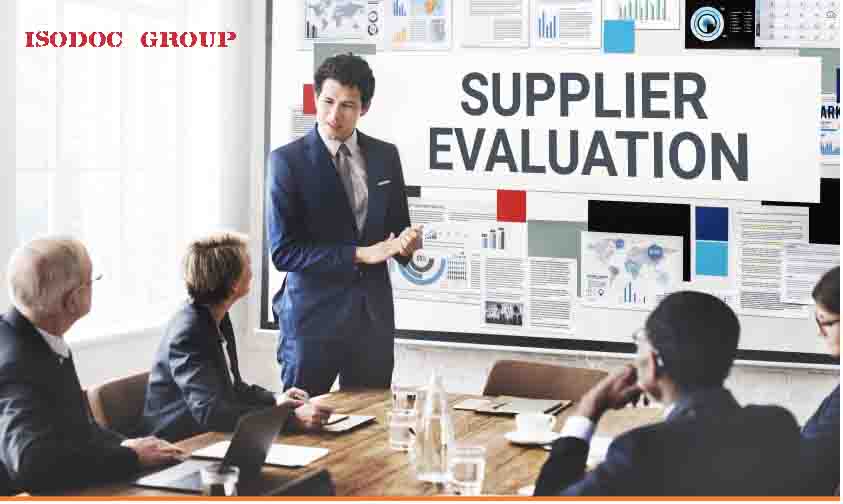
What Is Supplier Evaluation in Quality Management?
Supplier evaluation is a common term in the business and procurement environment, referring to the process of assessing, verifying, and approving potential or existing suppliers based on quantitative and qualitative criteria. The primary objective of this process is to ensure that the organization collaborates with the most suitable providers of goods or services who meet required standards.
In the context of a quality management system, supplier evaluation also involves the ongoing monitoring and performance measurement of current suppliers to reduce risks, control costs, and support continuous improvement across the supply chain.
Table of Contents
-
Supplier Evaluation Process in the ISO 9001-Based Procurement System
-
Advantages and Disadvantages of Supplier Evaluation Procedures
-
Using a Supplier Performance Evaluation System in Organizations
-
Downloadable Procedure for Implementing Supplier Evaluation in ISO 9001
Supplier Evaluation Process in the ISO-Based Procurement System
The implementation process of supplier evaluation is an integral part of the procurement function and is typically conducted during the supplier qualification phase. However, in many organizations, this process also involves collaboration with various departments and key stakeholders to ensure a holistic and strategic approach.
The supplier evaluation methodology usually takes the form of questionnaires, structured interviews, and in many cases, on-site audits or inspections. These evaluations cover a broad range of supplier aspects, such as production capacity, quality management practices, organizational structure, regulatory compliance, internal processes, and overall performance history.
Based on the findings gathered from this multi-dimensional evaluation, a supplier may either be approved or rejected. In approved cases, the supplier is added to the organization’s list of qualified or approved vendors, which serves as a reference for future procurement decisions. Following approval, suppliers are commonly re-evaluated periodically—often on an annual basis—as part of a broader supplier performance management framework.
This ongoing monitoring is vital and is often defined under supplier performance management processes, ensuring suppliers consistently meet evolving business and quality expectations.
Advantages and Disadvantages of Supplier Evaluation Procedures
A well-structured supplier appraisal and evaluation procedure provides numerous strategic advantages. Key benefits include:
-
Access to reliable sources that offer consistent product and service quality.
-
Reduction of hidden costs and supply chain disruptions.
-
Identification and mitigation of supply risks.
-
Improvement in procurement decision-making through data-driven insights.
-
Motivates suppliers to enhance their operational performance in response to constructive feedback.
From a quality management system perspective, the evaluation of suppliers supports the organization’s goals of compliance, risk reduction, and continuous improvement.
However, there are also challenges associated with the effective application of a supplier evaluation strategy. One critical issue is ensuring that the assessment process goes beyond basic performance metrics and leads to tangible performance improvements. This requires transparent feedback mechanisms, active supplier engagement, and follow-up on corrective actions and improvement plans.
Using a Supplier Performance Evaluation System in Organizations
The successful implementation of a supplier evaluation system is vital for ensuring that suppliers are selected, monitored, and retained based on consistent and verifiable criteria. An effective system must be aligned with the organization’s procurement and quality objectives and should support long-term partnerships based on trust, transparency, and performance.
The structure and execution of a supplier assessment procedure can vary significantly from one organization to another. Each company may develop its own mechanisms tailored to its size, industry, regulatory requirements, and strategic sourcing goals. These systems often include documented procedures, defined criteria, standard forms, and responsibilities assigned to relevant departments such as quality assurance, procurement, or supplier development.
The Relationship Between Purchasing and Supplier Evaluation
Supplier evaluation is an essential part of the purchasing process, as it directly influences the selection of qualified sources for goods and services. The effectiveness of purchasing decisions depends on the reliability, quality, and performance of suppliers. By integrating supplier evaluation into the procurement cycle, organizations can ensure that only capable and compliant suppliers are approved, reducing the risk of delays, nonconformities, or increased costs. Therefore, supplier evaluation is not a separate activity but a strategic function that supports and strengthens the overall purchasing system within a quality management framework.

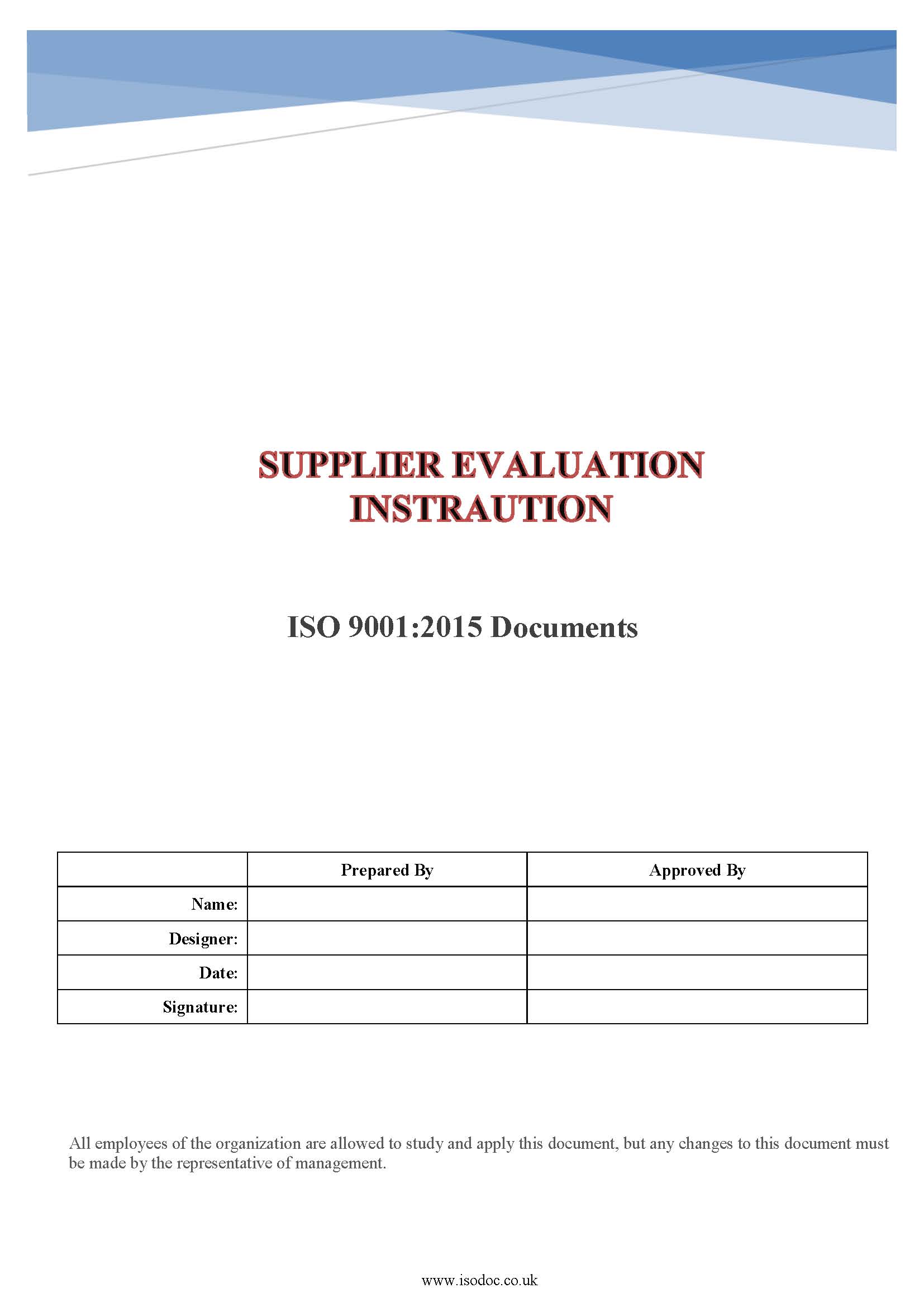
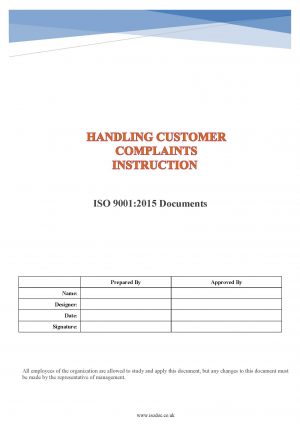
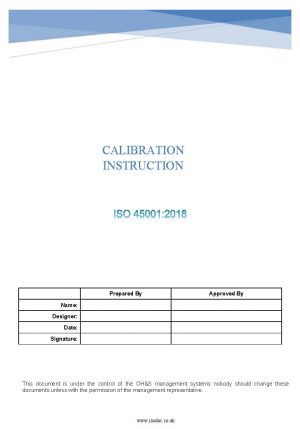
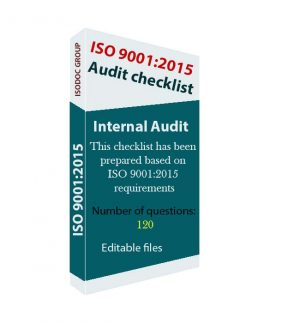
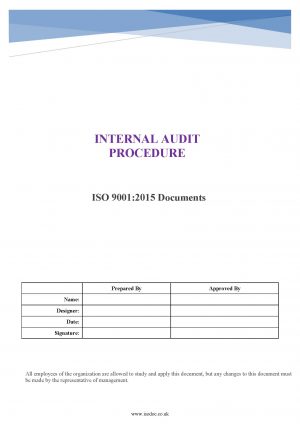
Reviews
There are no reviews yet.